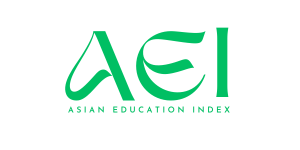Impact of COVID-19 Pandemic on Sustainable Hospitality and Tourism E-Marketing in Nigeria
DOI:
https://doi.org/10.62480/tjms.2022.vol7.pp1-10Keywords:
Nigeria, Covid, Hospitality, TourismAbstract
The tourism industry is one of the sectors that is greatly affected by COVID-19 pandemic. Data for the review was generated from desk review of secondary materials such as online blogs, and primary data such as observation and interview through social media chat. The study adopted a descriptive – survey design with simple tabulation and t-test analysis for testing of stated hypothesis. Findings of the study revealed that the outbreak of pandemic disease led to rapid shutdowns in cities and states across Nigeria, which greatly affected the tourism and hospitality industry in particular. This pandemic showed the rapid negative impact on the tourism and hospitality marketing in particular and the industry at large. The findings revealed that COVID-19 has increased cancellations of reservations of various kinds, hotels and travel bookings resulted in revenue loss and unemployment situations, as well as loss of substantial revenue to the government and increasing incidence of poverty among others. The paper recommends that provision of alternative service and diversification of services, as well as product consumption and compensation to business operators in the hospitality and tourism sector to return back to normal operations is a key factor in salvaging the situation in Nigeria.
References
Dimitropoulos P. (2018), Profitability determinants of the Greek hospitality industry: the crisis effect. In: Katsoni V., Velander K., editors. Innovative Approaches to Tourism and Leisure. Springer; Switzerland:
Gössling S., Scott D., Hall C.M. (2020), Pandemics, tourism and global change: a rapid assessment of COVID-19. J. Sustain. Tour.
Gössling S., Scott D., Hall C.M. (2020), Pandemics, tourism and global change: a rapid assessment of COVID-19. J. Sustain. Tour. 2020:1–20. [Google Scholar]
Ivanov S.H., Webster C. Designing robot-friendly hospitality facilities. (2017), Proceedings of the Scientific Conference “Tourism. Innovations. Strategies” 2017:13–14. [Google Scholar]
Ivanov S., Webster C. (2018), Adoption of robots, artificial intelligence and service automation by travel, tourism and hospitality companies – a cost-benefit analysis. In: Marinov V., Vodenska M., Assenova M., Dogramadjieva E., editors. Traditions and Innovations in Contemporary Tourism. Cambridge Scholars Publishing; Cambridge
Jamal T., Budke C. (2020), Tourism in a world with pandemics: local-global responsibility and action. J. Tour. Futures. 2020 doi:
Jauhari V. (2009), Hospitality, tourism and economic growth in India. Worldw. Hosp. Tour. Themes. 2009;
Jauhari V. (2010), How can the visitor experience be enhanced for spiritual and cultural tourism in India? Worldw. Hosp. Tour. Themes.
Kyriakidou O., Maroudas L. (2010), Training and development in British hospitality, tourism and leisure SMEs. Manag. Leis.
Lodder W., de Roda Husman A.M. SARS-CoV-2 in wastewater: (2020), potential health risk, but also data source. Lancet Gastroenterol. Hepatol. 2020;1
Malhotra N., Birks D. Pearson education; (2007). Marketing Research: an Applied Approach: 3rd European Edition. [Google Scholar]
Malhotra R., Venkatesh U. (2009), Pre‐crisis period planning: lessons for hospitality and tourism. Worldw. Hosp. Tour. Themes. 2009;
McCool B.N. (2012), The need to be prepared: disaster management in the hospitality industry. J. Bus. Hotel Manag.
Min J.C., Lim C., Kung H.H. (2011), Intervention analysis of SARS on Japanese tourism demand for Taiwan. Qual. Quant.
Mitroff I.I., Shrivastava P., Udwadia F.E. (1987), Effective crisis management. Acad. Manag. Perspect. 1987;1(4):283–292. doi: 10.5465/ame.1987.4275639. [CrossRef] [Google Scholar]
Nath K.J. (2003), Home hygiene and environmental sanitation: a country situation analysis for India. Int. J. Environ. Health Res. 2003;
Nkengasong J. (2020), China’s response to a novel coronavirus stands in stark contrast to the 2002 SARS outbreak response. Nat. Med.
Ratislavová K., Ratislav J. (2014), Asynchronous email interview as a qualitative research method in the humanities. Hum. Aff. 2014;24(4):452–460
Reddy M.C., Paul S.A., Abraham J., McNeese M., DeFlitch C., Yen J. (2009), Challenges to effective crisis management: using information and communication technologies to coordinate emergency medical services and emergency department teams. Int. J. Med. Inform.
Strauss A., Corbin J. (2020), Sage publications; Thousand Oaks, CA: 1998. Basics of Qualitative Research Techniques. [Google Scholar]
Tse A.C.B., So S., Sin L. (2006), Crisis management and recovery: how restaurants in Hong Kong responded to SARS. Int. J. Hosp. Manag. 2006;25(1):3–11.
Webster C., Ivanov S. (2020), Demographic change as a driver for tourism automation. J. Tour. Futures. 2020 doi: 10.1108/JTF-10-2019-0109. [CrossRef] [Google Scholar]
Wen Z., Huimin G., Kavanaugh R.R. (2005), The impacts of SARS on the consumer behaviour of Chinese domestic tourists. Curr. Issues Tour. 2005;8(1):22–38. doi: 10.1080/13683500508668203. [CrossRef] [Google Scholar]
Yang L., Henthorne T.L., George B. (2020), Digital Transformation in Business and Society. Palgrave Macmillan; Cham: 2020. Artificial intelligence and robotics technology in the hospitality industry: current applications and future trends; pp. 211–228. [Google Scholar]
Zhang H., Cho T., Wang H. The impact of a terminal high altitude area defense incident on tourism risk perception and attitude change of Chinese tourists traveling to South Korea. Sustainability. 2020;12(1):1–13. doi: 10.3390/su12010007. [CrossRef] [Google Scholar]
Downloads
Published
Issue
Section
License

This work is licensed under a Creative Commons Attribution-NonCommercial 4.0 International License.
User Rights
Under the Creative Commons Attribution-NonCommercial 4.0 International (CC-BY-NC), the author (s) and users are free to share (copy, distribute and transmit the contribution).
Rights of Authors
Authors retain the following rights:
1. Copyright and other proprietary rights relating to the article, such as patent rights,
2. the right to use the substance of the article in future works, including lectures and books,
3. the right to reproduce the article for own purposes, provided the copies are not offered for sale,
4. the right to self-archive the article.














